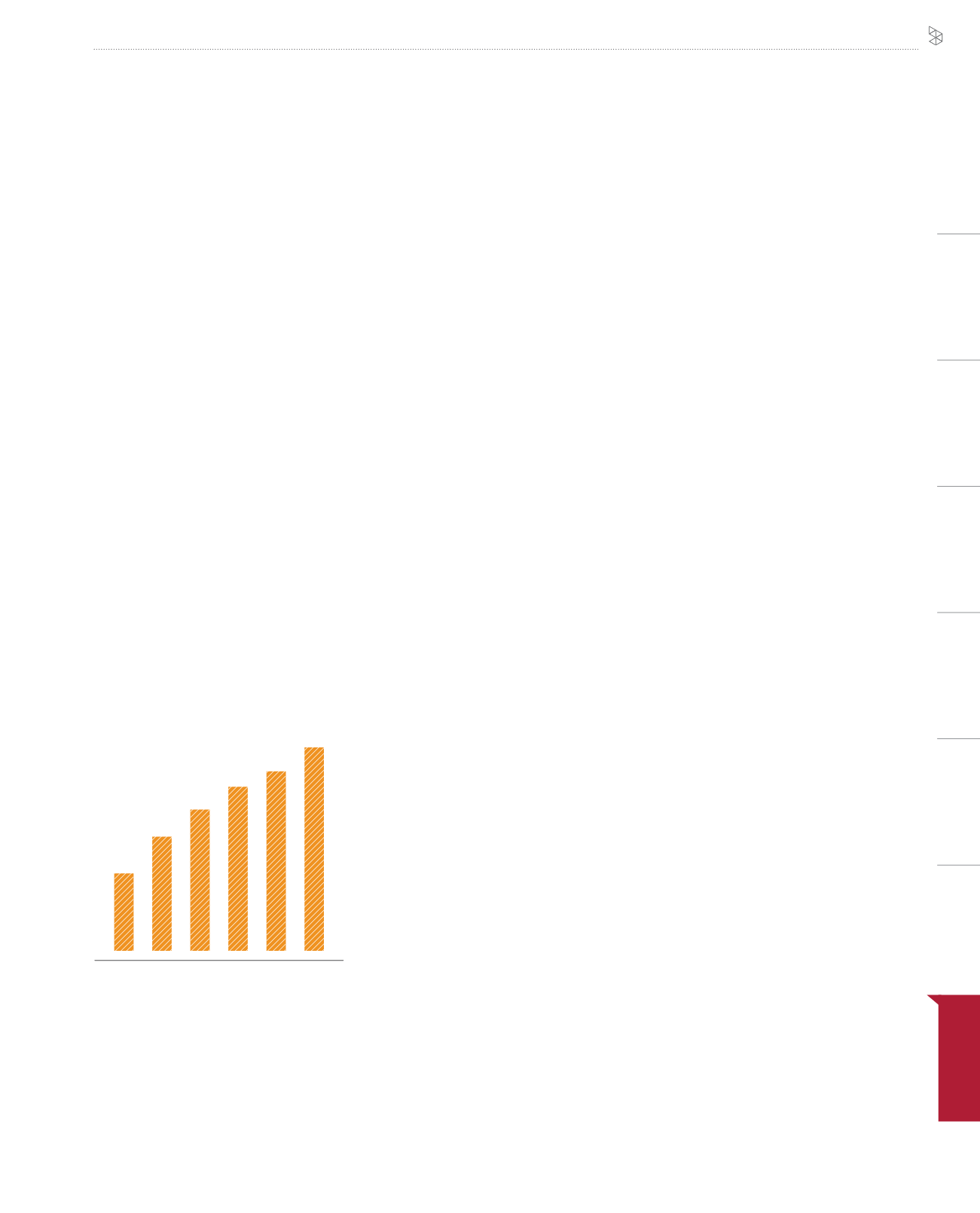

Introduction
NATIONAL
CONTRIBUTION REPORT
Beyond Short-
Term Profits
Nurturing People
Process Excellence
& Governance
Planet & Society
Our Associates
NATIONAL CONTRIBUTION REPORT 81
Axiata Group Berhad | Sustainability & National Contribution Report 2016
Women’s employment – the engine of the
Bangladesh economy
The National Women Development Policy
was ratified in 2011 to create a national
vision for social, legal and economic
empowerment of women.
Economic empowerment of women is still
at low levels and Bangladesh is ranked
135 out of 147 countries for economic
participation by the Gender Gap Report
of the World Economic Forum 2016.
According to the World Bank’s World
Development Indicators, Bangladesh has
a 57.6% female labour force participation
rate compared to a world average of
50.3% (see Figure 5).
The Bangladesh Development Update
noted that if Bangladesh wants to reach
middle-income status by 2021, the country
will have to add more women to the
workforce.
Figure 5: Female labour force
participation rate (%)
2008
56.6
56.9
57.1
57.3
57.4
57.6
2010 2011 2012 2013 2014
ICT helps empower women across
different sectors
Case studies in Africa and Asia have proven
that mobile phones can be effective in
helping women become more efficient
and generate greater income. The number
of women entrepreneurs has grown in
these areas following the implementation
of m-money services while women in other
locales have started using ICT to build new
networks.
The number of women involved in small-
and micro-enterprises is increasing in
Bangladesh. For women entrepreneurs,
ICT serves as an effective learning and
networking tool as well as for outsourcing
business opportunities in different stages
of the value chain.
SME
Foundation
Bangladesh,
an
autonomous organisation that facilitates
the development of SMEs with a focus on
women entrepreneurs, provides regular
training programmes to prepare women-
led SMEs in ICT adoption.
In collaboration with the GSMA mWomen
Innovation Fund, Robi aims to create
a mobile learning service to improve
employability for rural adolescent girls. The
service offers mobile platforms to deliver
English lessons through voice and SMS
to help users become more employable
in major industries such as garment
manufacturing. Robi also launched the
Digital Smart Buses project, using six buses
to provide basic ICT training to 240,000
young and talented women across 64
districts of the country.
Source: The World Bank
NATIONAL CONTRIBUTION
REPORT









